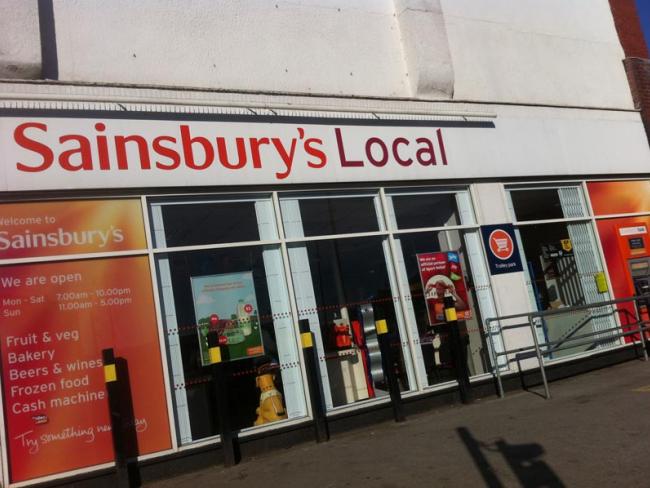2 February 2016

Up to 30,000 jobs are under threat in Argos as Sainsbury’s makes its move. Photo Workers.
The supermarket chain Sainsbury’s has made a £1.3 billion takeover bid for Home Retail Group, which owns Homebase and high-street retailers Argos.
All the usual platitudes about “streamlining” services to customers, “rationalizing” brands and “restructuring” retail outlets are rolled out by the bidder and prospective victim as part of the explanation to baffled customers about what is going on. But behind all the twaddle is a classic example of capitalism’s dog-eat-dog economics.
Sainsbury’s is under pressure from new rivals Lidl and Aldi, on top of the old competition with the likes of Asda, Tesco and Morrisons. So it has to expand its market share, up its rate of return to its shareholder, reduce its wages costs and try to make a killing in the property market by freeing up expensive high-street retailing sites.
So brands will merge, and those involved in production will either have to find a new outlet for their products or change the branding/labels – or lose their jobs. Up to 30,000 jobs are under threat in Argos alone, possibly more.
Hedging bets
But lurking in the background are investment companies betting that the share price will fail in such takeovers and that they will make a fortune by buying or borrowing shares, off-loading them and then re-buying them at a lower price. It’s pure casino economics, and nothing to do with production, or employment or even brand promotion.
The Canada Pension Plan Investment Board, which invests over a quarter of a trillion dollars for Canadian pensioners and has assets of over £135 billion, has lodged a £47 million bet against Sainsbury’s takeover gamble. Chicago-based Citadel hedge funds has lodged a similar bet for £25 million.
The Canadian company has run similar “shorting” operations against Drax, which runs the Drax Power Station in Yorkshire, and sugar giant Tate and Lyle. Both companies are now struggling to survive.
